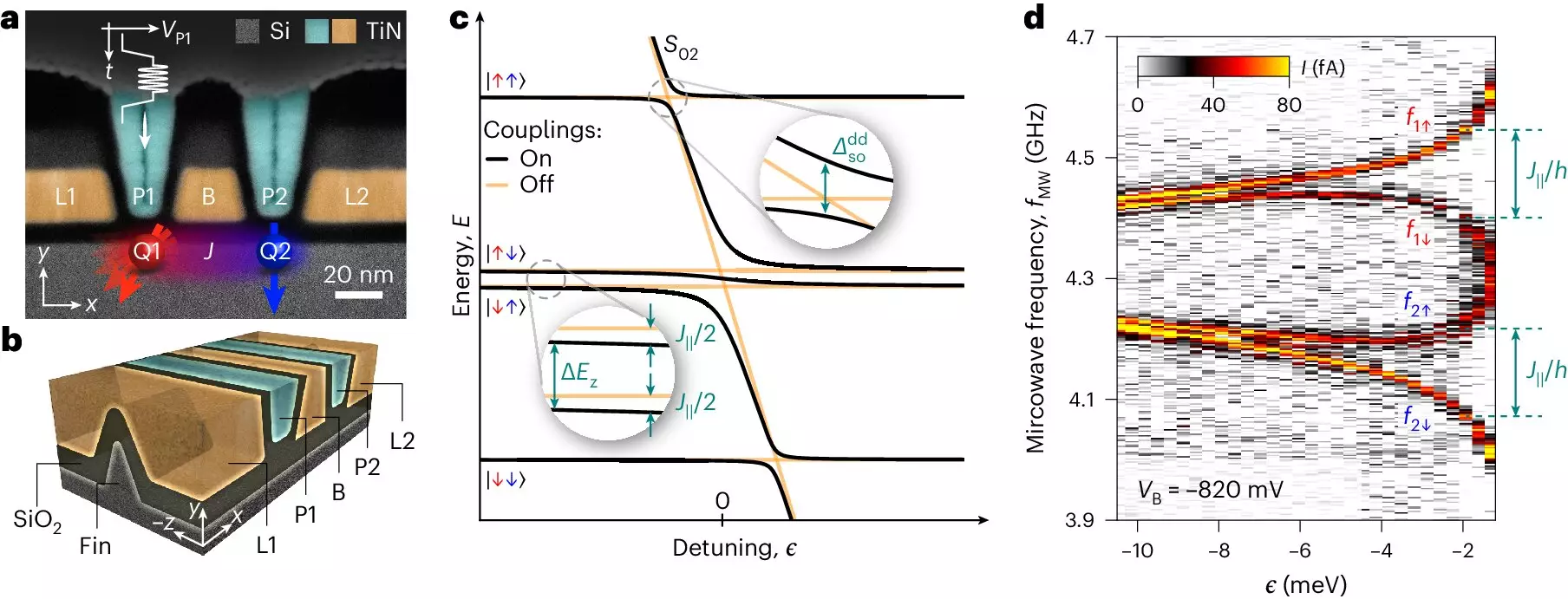The field of quantum computing is rapidly evolving, with researchers constantly striving to develop practical quantum computers that can outperform conventional computers. One of the key challenges in this endeavor is finding the most suitable qubit technology to maximize the potential of quantum information science. Recently, researchers from the University of Basel and the NCCR SPIN have made significant progress in this area by achieving the first controllable interaction between two hole spin qubits in a conventional silicon transistor.
The Significance of Qubits in Quantum Computing
Qubits are the building blocks of quantum computers, responsible for processing, transferring, and storing data. In order for a quantum computer to function effectively, qubits must be able to reliably store information and process it at high speeds. The key to rapid information processing lies in establishing stable and fast interactions between a large number of qubits that can be easily controlled from external sources.
One of the main challenges in the field of quantum computing is the scalability of qubit technologies. While current quantum computers have only a few hundred qubits, a practical quantum computer would require millions of qubits to be integrated on a single chip. This poses a major obstacle in achieving the desired computational power that quantum computers promise.
The Role of Hole Spin Qubits
Researchers at the University of Basel and the NCCR SPIN are exploring the use of hole spin qubits, which leverage the spin of an electron or a hole to store and process quantum information. Compared to electron spins, hole spins offer the advantage of being entirely electrically controllable without the need for additional components like micromagnets. This makes them an attractive candidate for scalable quantum computing applications.
In a recent study published in the journal Nature Physics, researchers demonstrated the controllable interaction between two hole spin qubits in a silicon transistor. This achievement marks a significant milestone in the development of quantum computers, as it opens up the possibility of integrating millions of qubits on a single chip using existing manufacturing processes. The researchers were able to couple two qubits and perform a controlled spin-flip operation, showcasing the potential for fast and high-fidelity quantum gates using hole spin qubits.
Hole spin qubits offer several advantages for quantum computing applications. They are highly scalable, leveraging the well-established fabrication processes of silicon chips. Additionally, hole spin qubits have proven to be fast and robust in experimental settings, making them a promising candidate for large-scale quantum computing implementations. The anisotropic nature of hole spins also enables two-qubit gates without compromising speed or fidelity, a significant advancement in the field.
The development of controllable hole spin qubits represents a major step forward in the quest to build practical quantum computers. By leveraging the unique properties of hole spins, researchers are able to achieve fast and reliable interactions between qubits, paving the way for the integration of millions of qubits on a single chip. This approach holds great promise for the future of quantum computing and is likely to play a key role in the ongoing race to develop large-scale quantum computers.


Leave a Reply